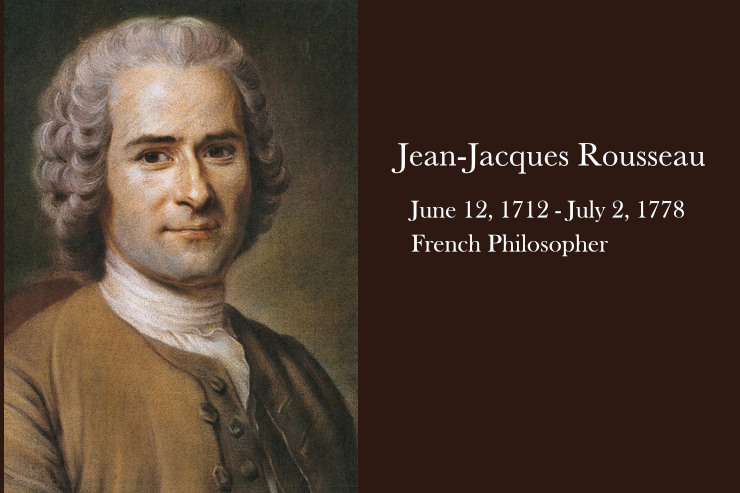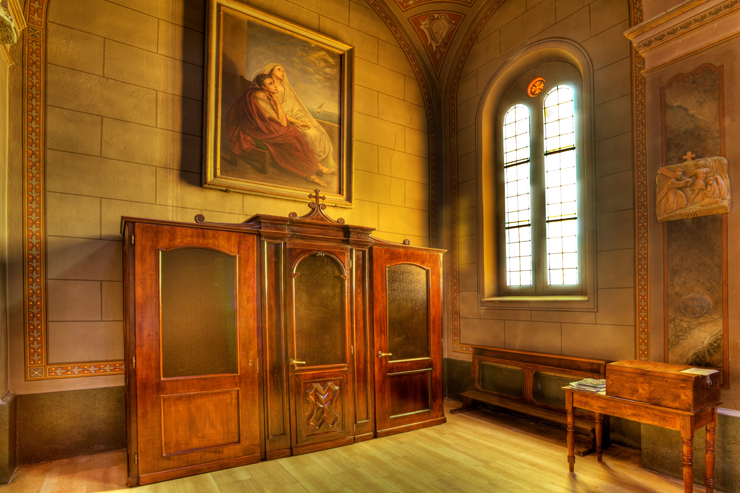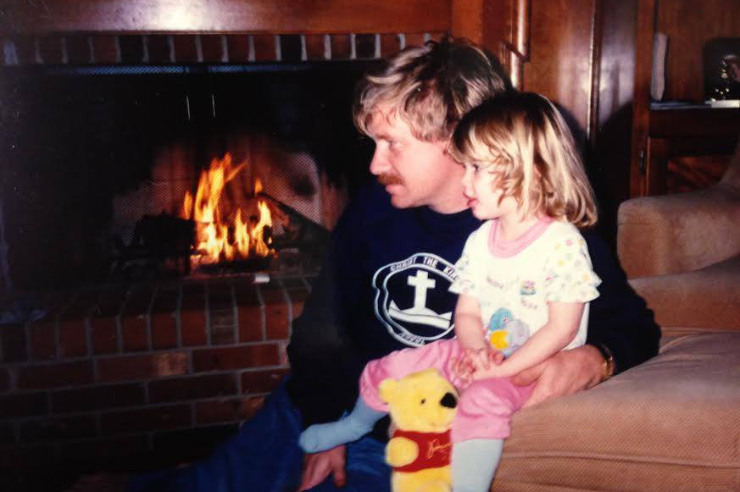Rousseau, along with Descartes, Hobbes, and as we will see, many others, are philosophers and intellectuals that each constructed their philosophy and worldview based on their own subjective imaginations, their view of reality, not reality itself. While many of them had great insights, and in some ways bordered on genius, the fact of the matter remains that theirs is a “house built on sand.”
Europe will not hold. To be more precise, the European Union will not hold. Faced with a number of internal and external factors that include (but are not limited to) demographics, economics and internal security, several countries in the EU are turning towards more nationalistic political parties or policies.
For example, according to the Independent news service in Great Britain, Norway is offering up to 80,000 Kroner (roughly $9,200.00 US) plus air fare to individuals and families to return to their country of origin. In France, according to the BBC, the “far-right” National Front received more votes (28%) in the first round of balloting than either the center-right Republicans (27%) or the Socialist Party (23%). An editorial in Al Jazeera calls the NF victory “a bigger threat than ISIL.” Even in the United States, which is facing its own challenges, Donald Trump is calling for the suspension of any immigration by Muslims, and is applauded for it!
For many years now some writers have been predicting an apocalyptic future for Europe and the West. William Kilpatrick, author of Christianity, Islam, and Atheism: The Struggle for the Soul of the West, wrote in The Catholic World Report:
“So, absent historical knowledge, and absent the ability to make sense of current events, it’s quite possible that European civilization (with America to follow) will slip silently into a new Dark Ages.”[i]
While it seems a foregone conclusion that the situation will get much worse in Europe it would appear too early to declare total defeat. Pope St. John Paul the Great saw this not as a time of defeat but rather the threshold of a new Christian millennium. Error, though, first has to run its course, which brings us to another philosopher that has contributed to our current crisis.
Jean-Jacques Rousseau
Rousseau, who lived between the years 1712 and 1778, can probably be considered one of the most influential of the Enlightenment writers in the area of political philosophy. While he wrote many books and essays on various topics for our purposes we will focus on his Discourse on the Origin and Foundations of Inequality among Men, written in 1754.
Jean-Jacques Rousseau was a brilliant individual who was mostly self-taught. His mother died days after his birth and he was raised by an aunt and his unstable father who was a wandering watchmaker. At the age of ten his father abandoned him and Rousseau moved from place to place. Dr. Benjamin Wiker describes Rousseau as “socially clumsy and sickly, growing into manhood with little or no guidance as he meandered about Europe from job to job (engraver, copyist, lackey, tutor, secretary, land register, assistant to an ambassador), from patron to patron, and from mistress to mistress.” [ii]
In 1750, at the age of thirty-eight, Rousseau achieved fame when he submitted an entry in an essay competition offered by the Academy of Dijon. The proposed question was, “Has the restoration of the sciences and arts tended to purify morals?” Rousseau’s winning answer, entitled Discourse on the Sciences and Art, was “No. The more civilized we become, the more corrupt we become.” His argument hinged on a belief that people in the beginning enjoyed natural purity and happiness. The advancement of the sciences and arts took people away from this and made them both softer and more elaboratively vicious. The same was true for the art of government. While providing for our safety, laws and government take away our “original liberty,” making us “happy slaves” who have “a softness of character and urbanity of customs” that give “the semblance of all the virtues without the possession of any.” The best example of this idea is the charge against European expansion and Christian missionary activity. Europeans, and in particular the Catholic Church, did not do the aboriginal peoples of the Americas any favours when they introduced “civilization” and “the Gospel” but rather stole from them their simple happiness, taking from them their innocence.
Rousseau’s Second Discourse—properly entitled Discourse on the Origin and Foundation of Inequality Among Men—was written as a response to another question from the Academy of Dijon, this time in 1754: “What is the origin of the inequality among men, and is it authorized by Natural Law?” Rousseau did not win this time but he published his essay the next year and became famous as a result.
The Second Discourse was a profound work. Wiker writes that “One finds in him, for good or ill, the seeds of Romanticism and folk-nationalism, the French Revolution and totalitarianism, Marx and Nietzsche, Freud and Darwin, modern anthropology and Margaret Mead, the sexual revolution and the dissolution of the family—all marked with what is characteristically Rousseau: genius and blunder.” [iii]
As with Hobbes, Rousseau creates a fiction as the foundation of his ideas. “Rousseau seems to call to attention to his fiction when he warns the reader that he is ‘setting all the facts aside’ and that what he has to say “must not be taken for historical truths, but only for hypothetical and conditional reasonings.” [iv] Again, as with Hobbes, given the state of historical and anthropological research at the time Rousseau’s image of natural man can only come from his imagination.
It is important to recognize that most of the modern intellectuals let “their imaginations run away with them, and they run away with their imaginations. They fashion a utopia in the distance, either in the mists of the distant past or the sunlit slopes of the distant future. By the power of their words, they drive otherwise sane and healthy men and women to waste their own lives and the lives of countless others, sometimes to the ruination of their countries.” [v]
Where Hobbes’ primitive man was a gorilla, Rousseau’s man was suave, peaceful, innocent, carefree and cheerfully sexually active.
According to Rousseau, natural men “in the primitive state” had “neither houses, nor huts, nor property of any kind.” Indeed, they were little more than animals. They had no language; they were creatures of the senses, not of reason. As in Hobbes’ vision, these original human beings were naturally solitary. Neither love nor the family was natural. “Males and females united fortuitously, depending on encounter, occasion, and desire,” and “they left each other with the same ease.” [vi]
Rousseau goes on to describe a world where there was no love between mother and child, with the child leaving as soon as it no longer needed to be fed. As for the father, there was also no love nor moral duty, this being an artificial construct only after men fell from their morality free primitive state and became enslaved by social convention. In the natural state men and women acted only on sexual impulse. “Everyone peaceably waits for the impulsion of nature, yields to it without choice with more pleasure than frenzy; and the need satisfied, all desire is extinguished.”
Rousseau goes on to describe this “idylic” amoral primitive existence and space prevents any further description. Suffice to say that for Rousseau, “Savages are not evil precisely because they do not know what it is to be good.”
Ideas Have Consequences
The core of Rousseau’s philosophy is that morality is an artificial construct, a construct that enslaves rather than liberates, for it favours the rich and powerful. The more society advanced the more people became enslaved. In many ways Rousseau was the father of Revolution. The French Revolution was an attempt to undo the artificial structures of French society where those who have, get more, and those who have-not end up with even less. Civil society was simply a structure of rules that served the rich and imprisoned the poor. Rebellion of the have-nots, therefore, was always justified. The goal was to return to our original innocence. Marx and Engels later ran with this idea, though taking it in another, more future oriented, direction. I will look at this aspect more closely next time.
For now, I wish to examine the impact that Rousseau’s ideas had on Europe that has led, in part, to the current situation.
Europe’s problems stem from, among other things, a divorce from its Christian foundations and a demographic crisis. Pope Emeritus Benedict XVI, in his book, Christianity and the Crisis of Cultures, argues that the philosophy of the Enlightenment (of which Rousseau is a key contributor), while contributing worthwhile advancements in areas such as human rights, also failed in the sense that it is self-limiting, by choice, especially from what Benedict calls “the basic memory of mankind.” Benedict was critical of the European Union’s refusal to acknowledge the Christian roots of Europe. The decision was, for Benedict, a bold imposition of this impoverished worldview on the member states. This decision creates a conflict:
“The real antagonism typical of today’s world is not that between diverse religious cultures; rather, it is the antagonism between the radical emancipation of man from God, from the roots of life, on the one hand, and the great religious cultures on the other.” [vii]
In other words, by accepting the imaginary views of human origins and human nature that are espoused by Enlightenment philosophers, and in rejecting to ground the EU on its Christian heritage, Europe has left itself open to having its culture replaced by another, non-Christian, culture that is much more confident of its root of origin. Had the Europeans embraced their Christian roots the non-Christian immigrants would have been confronted with a healthy and vigorous self-identity on the part of the Europeans, a self-identity that would be both a bulwark and a challenge to any other culture, one that could have inspired many non-Christians to embrace Christianity. As it stands, Europe has nothing to culturally challenge migrants with other than some vague philosophical notions of tolerance and acceptance. That is not enough to preserve a civilization.
Secondly, and more directly linked with Rousseau’s philosophy, is the deconstruction of marriage and the resulting collapse of Europe’s birth rate. The sad fact is that Europe is in desperate need of people in order to keep its economy going. Had the migrants come from predominantly non-Muslim countries there wouldn’t have been a problem but since it is indeed Muslims that are migrating Europe is faced with a clash of cultures. Europe is in a vicious cycle—to keep its massive social welfare society running it needs migrants to make up for the children they are not having, but the migrants it gets are not interested in assimilation to a culture that doesn’t offer them a challenge, which means that Europe’s “Enlightenment-based” culture is eventually going to be superseded by the culture of those it cannot afford to economically turn away.
Western society has accepted the notion that marriage and family are a social construct, indeed a social construct that limits us and enslaves us to moral codes that are artificial and inhuman because they restrict the pursuit of our desires. In our rush to throw off these chains we never foresaw the crisis that would result as the population aged without sufficient replacement.
Dr. Wiker summarizes the result well when he writes:
“We moderns live, in no small part, within Rousseau’s imagination; to put it another way, we might say we have been made in the image of Rousseau. Modern man has discarded the idea that he is fashioned in the image of God, that he is to love his wife as himself, and that he should regard his children as precious miracles being his and his wife’s image.
“Instead, he accepts Rousseau’s myth that he is a man-animal who would be happier if he left women with the same careless conscience as a rutting beast of the field, cast his children behind him to be tended by chance, and spent his days on his own satisfactions, living a life of ‘pure sensations.’ Beer, sports, television, movies, video games, iPods, the Internet, sex, sleep.
“… As with Hobbes, we see again the power of fiction. Rousseau’s account of natural man was no more real than Hobbes’, but following the same pattern, once it became the accepted story of human origins, it thereby exercised the power of a self-fulfilling prophecy. In imagining Rousseau to be right, we have become what Rousseau imagined. [viii]
Rousseau, along with Descartes, Hobbes, and as we will see, many others, are philosophers and intellectuals that each constructed their philosophy and worldview based on their own subjective imaginations, their view of reality, not reality itself. While many of them had great insights, and in some ways bordered on genius, the fact of the matter remains that theirs is a “house built on sand.” The philosophical truism that “a small error in the beginning will result in a great error in the end” is being proven valid in the crisis befalling Europe, indeed all Western countries. The Storm will have to wash away the sand castles of the Enlightenment first before Western civilization can rebuild on the rock of Truth.
Footnotes
[i] Kirkpatrick, William; Will a Future Pope Be Forced to Flee Rome; http://www.catholicworldreport.com/Item/3645/will_a_future_pope_be_forced_to_flee_rome.aspx
[ii] Wiker, Benjamin, PhD.; 10 Books That Screwed Up The World; Regnery Publishing Inc.; p.42
[iii] P.44
[iv] P. 44
[v] P.44
[vi] P.45
[vii] Ratzinger, Cardinal Joseph; Christianity and the Crisis of Cultures; Ignatius Press, p.44
[viii] Wiker, p52-53














